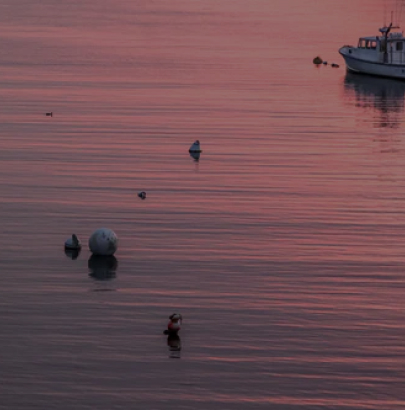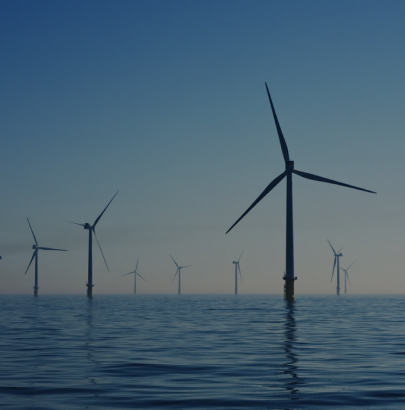Overall Scope
With offshore wind able to help Maine meet its renewable energy need to address climate change and a $70B opportunity for economic growth, the state is developing the EDA-funded Maine Offshore Wind Roadmap: Charting a Course for Maine. Maine’s position near population centers with high energy demands, an enterprising citizenry with maritime heritage, an innovative research environment, and a high-quality wind resource make our state an ideal place to responsibly develop an offshore wind industry. Maine needs to identify how to support an OSW economy in a way that embraces the opportunity, while ensuring the sustainability of our Maine coastal heritage, existing ocean users, and resources.
This working group will examine the economic, workforce and infrastructure opportunities and needs to support the offshore wind economy for Maine. This group may be divided into task groups to focus on specific topics, as follows: a) supply chain; b) workforce development; and c) ports and marine transportation. The work of these task groups would be coordinated through the Working Group.
Goals of the Working Group
- Produce actionable, prioritized strategies to support Maine’s offshore wind industry that builds upon existing strengths, and leverages Maine’s competitive advantages in supply chain, workforce development, ports, and marine transportation; and
- Provide recommendations towards implementation of those strategies, including potential policy changes, marketing, education, training, investment/financial assurance guidance for individual companies, research and innovation, investments needed and funding options, and partnerships, in the immediate, near term (through 2025) and longer-term (2026-2040).
Deliverables to Advisory Committee
- Assessment of Maine’s assets to support an offshore wind industry with an action plan and tools to strengthen them. The assessment includes existing supply chain, workforce, and infrastructure such as ports. The action plan should specify how Maine can become a “regional center for supply chain operations”. The action plan should also detail how Maine can improve workforce development by preparing existing talent and attracting new talent, with the long-term goal of job creation and increased wages throughout the state.
- Guidance on socioeconomic data to be included in the Roadmap’s economic analysis in order to adequately and accurately consider potential costs and benefits of offshore wind to Maine.
- Standards or requirements that Maine should promote in the way developers work with the State.
- A list of prioritized data and information to collect to help inform future supply chain, workforce development, ports, and marine transportation needs for Maine’s OSW economy.
- A summary of any missing data or technical gaps.
- Synthesized draft report and presentation to Advisory Committee
Workplan
This section outlines the workplan of the working group, divided by three logical task groups (Supply Chain, Workforce Development, and Ports and Marine Transportation) with a general outline of the work schedule.
Full Working Group:
- Mutual Learning: Initial working group meetings will focus on building a shared understanding of priority topics selected by working group members. These can be through short webinars.
- Engage: Throughout the process, we seek to engage stakeholders and experts to elicit ideas, hear their feedback, and share final recommendations. Meetings will be noticed on the GEO website and are open to the public. A list of suggested outreach opportunities will be developed by the working group. It is anticipated that most outreach will take place at already scheduled meetings of organizations and groups.
- Partner: While recognizing that each state may want to create space for state-specific issues, the OSW economy encompass shared public resources and will transcend state and national borders. The working group will proactively engage with NH, MA, the Canadian Maritime Provinces, and federal agencies on trans-boundary issues, as appropriate. 1.
Supply Chain:
- Review and Catalog References: At the request and guidance of the working group, staff and/or contractor will collect, review, and catalog existing reports, studies, and plans to assist the working group with its work. We will draw on existing data, strategies and lessons learned from OSW supply chain efforts in other states, the U.S. (e.g., “30GW by 2035” project funded by NOWRDC), and countries (e.g., UK) to identify approaches that will be helpful to Maine.
- Catalog our existing Maine supply chain for OSW: With guidance from the working group, a contractor will review the 3 existing databases of Maine OSW supply chain at Maine Composites Alliance, Maine International Trade Center, and New England Aqua Ventus (these will be compiled in the national Business Network for Offshore Wind Supply Chain Registry) and identify supply chain strengths for Maine.
- Assess existing Maine OSW supply chain vs. opportunities: With guidance from the working group, a contractor and staff will assess Maine’s OSW supply chain vs. opportunities (Gulf of Maine, regional, national, global) in the immediate, near term (through 2025), and the long term (2026-2040), highlighting the gaps and strongest opportunities for Maine, as well as detailing how Maine can become a “regional center for supply chain operations”.
- Develop Action Plan to Improve: With guidance and approval from the working group, a contractor will develop an action plan to strengthen Maine’s opportunities for the OSW supply chain. The action plan will include specific considerations for increasing opportunities for MWBSE. The action plan will include prioritized strategies for immediate, near term (through 2025) and long term (2026-2040). Prioritization criteria TBD by the WG. The action plan will include the following:
- Marketing
- Trainings/Certifications
- Investments/Financial Assurance (for individual companies)
- Leadership, Programs, and Partnership Opportunities
- Policies, Laws, Regulations (e.g., standards for local content requirements)
- Investments Needed and Funding Opportunities – state and other
- Data, Information, Research, and R&D Innovation Needs
Workforce Development
- Review and Catalog References: At the request and guidance of the working group, staff and/or contractor will collect, review, and catalog existing reports, studies, and plans to assist the working group with its work. We will draw on existing data, strategies and lessons learned from OSW workforce in other states, nationally, and in other countries to identify approaches that will be helpful to Maine.
- Catalog existing Maine workforce efforts relevant to OSW: With guidance from the working group, a contractor will review existing Maine clean energy workforce assessments and initiatives to identify leveraging opportunities for OSW workforce development for Maine.
- Assess existing Maine OSW workforce vs. opportunities: With guidance from the working group, a contractor and staff will assess Maine’s OSW workforce vs. opportunities (Gulf of Maine, regional, national, global) in the immediate, near term (through 2025), and the long term (2026-2040), highlighting the strongest opportunities for Maine.
Other Working Groups

Fisheries

Renewable Energy Markets and Strategies
